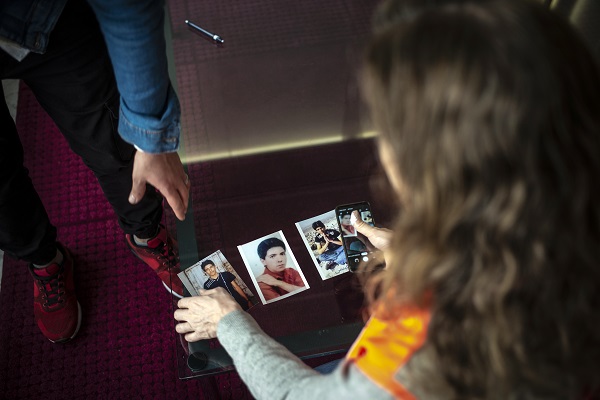Reunification pathways for integration
For people who are forced to leave their family behind when fleeing persecution, armed conflict or other situations of violence, family reunification is often the only way to enjoy family life once they reach safety.
Despite more than 20 years’ implementation of the EU Family Reunification Directive and similar laws on refugee family reunification, reuniting the family members of refugees and beneficiaries of international protection in Europe remains difficult and lengthy due to various legal and practical obstacles. Key barriers relate to fees, administrative delays, stringent requirements and exit visas, as well as a lack of information on the intricacies of the law and affordable advice on how it applies to individual situations.
The Reunification Pathways for Integration (REPAIR) project, co-funded by the European Union’s Asylum, Migration and Integration Fund (AMIF), aims to assess and reduce these obstacles. The objective is to help increase the number of people who can benefit from family reunification and create a more welcoming environment to support the integration prospects of beneficiaries of international protection and their families in Europe. The three-year project, which runs from 2022 to 2024, is led by the International Federation of Red Cross and Red Crescent Societies (IFRC) in partnership with the Austrian Red Cross, British Red Cross, French Red Cross and Slovenian Red Cross.
Building on the International Red Cross Red Crescent Movement's longstanding work with separated families, National Red Cross Societies in Austria, the UK, France and Slovenia offer a range of services to beneficiaries of international protection and their family members before, during and after their reunification.

Through individual counselling, people residing in Europe can receive legal advice on the different requirements and steps in their family reunification process. For example, trained Red Cross volunteers and staff support families in collecting the necessary documentation to submit their visa application, getting materials translated, liaising with responsible authorities and embassies in third countries and following up on highly complex legal cases and negative decisions. These types of services are essential and make it clear that European states need to invest more in capacities for the provision of information to help increase access to family reunification, especially where support has dramatically decreased due to the removal of legal aid.
The constant worry about family members left behind often takes a heavy toll on people’s mental and physical health. Therefore, while waiting for the reunification to be completed, people supported by REPAIR can also receive psychosocial assistance. In addition, National Red Cross Societies provide integration support, as soon as possible when families are reunited and even before the arrival of family members. This includes providing socio-cultural orientation sessions, psychosocial support and language classes as government measures to support newly reunited families are sometimes underdeveloped. The programme shows how for the maintenance of the family unit, it is vital to receive assistance with navigating complex administrative procedures on arrival and to access essential rights, such as adequate housing.
%C3%96RK-%20Danijela%20Bogdanovic.jpg)
After one-year of implementing the REPAIR programme, the impact of long waiting times on family members left behind is evident. “I wondered if I would recognise my parents’’, says a child that received support through the project.
Besides the anxiety that lengthy procedures create, sponsors in Europe can come under extreme financial strain while supporting their family members in countries of origin and countries of transit. Family members often do not have stable housing or support networks to rely on, which can contribute to making them feel unsafe. This holds particularly true for children and dependent family members with poor health conditions, who lack special care arrangements. “We didn't have a choice: without a parent, we had to grow up faster”, says a child after being reunited with their parents in France. Family members often need to cross borders to reach the embassy of the European State where their application can be lodged and processed. Some may even encounter violence or exploitation along their journeys.
In this regard, Red Cross societies are carrying out needs assessments with families who have completed their family reunification process or are in the process of applying for family reunification. The results of these assessments will help tackle some of the unmet needs of families overseas and address gaps in available family reunification services in destination countries.
In the meantime, National Red Cross Societies are working to improve national practices and make sure that family reunification is a swift and fair process. Thanks to the REPAIR programme, beneficiaries of international protection and their families feel accompanied at every step of the family reunification process. However, only when reunited, can they finally start building their new life in a new country.
For this reason, Red Cross societies are also developing tools such as family reunification guides, case studies showcasing new approaches, training and lessons learned to share with local authorities, receiving communities and transnational networks with the aim of improving access to family reunification and strengthening awareness around the rights and situation of beneficiaries and their families. Finally, National Red Cross Societies continue to share their expertise so that governments review their policies and practices and tackle the legal, practical and administrative obstacles limiting or preventing family reunification, while considering the voices of affected people.
Basic information
Activity name
REunification PathwAy for IntegRation
Country
Austria, France, the United Kingdom and Slovenia.
Duration
2022-2024
Partners
Austrian Red Cross, French Red Cross, British Red Cross, Slovenian Red Cross and IFRC.

